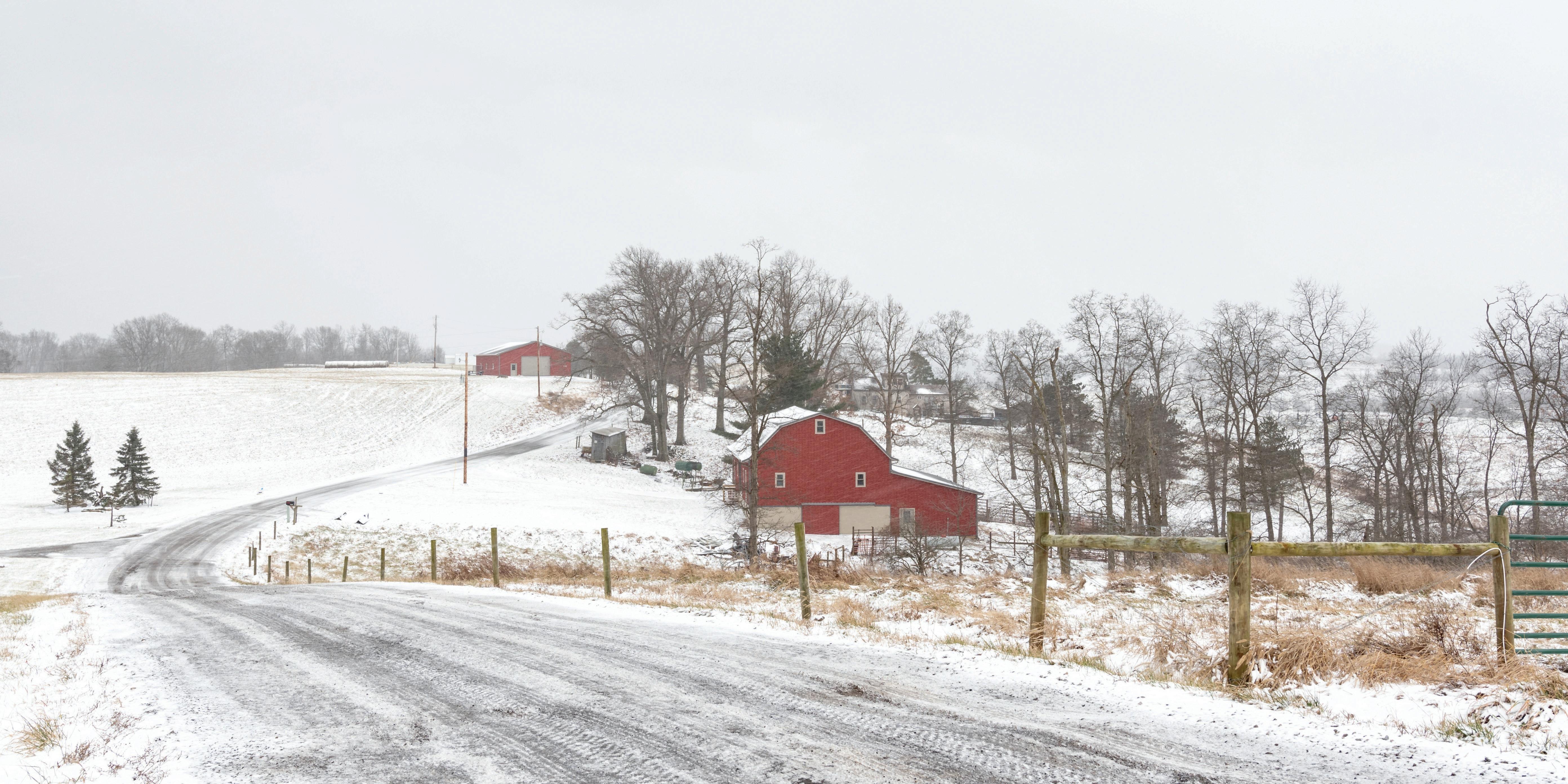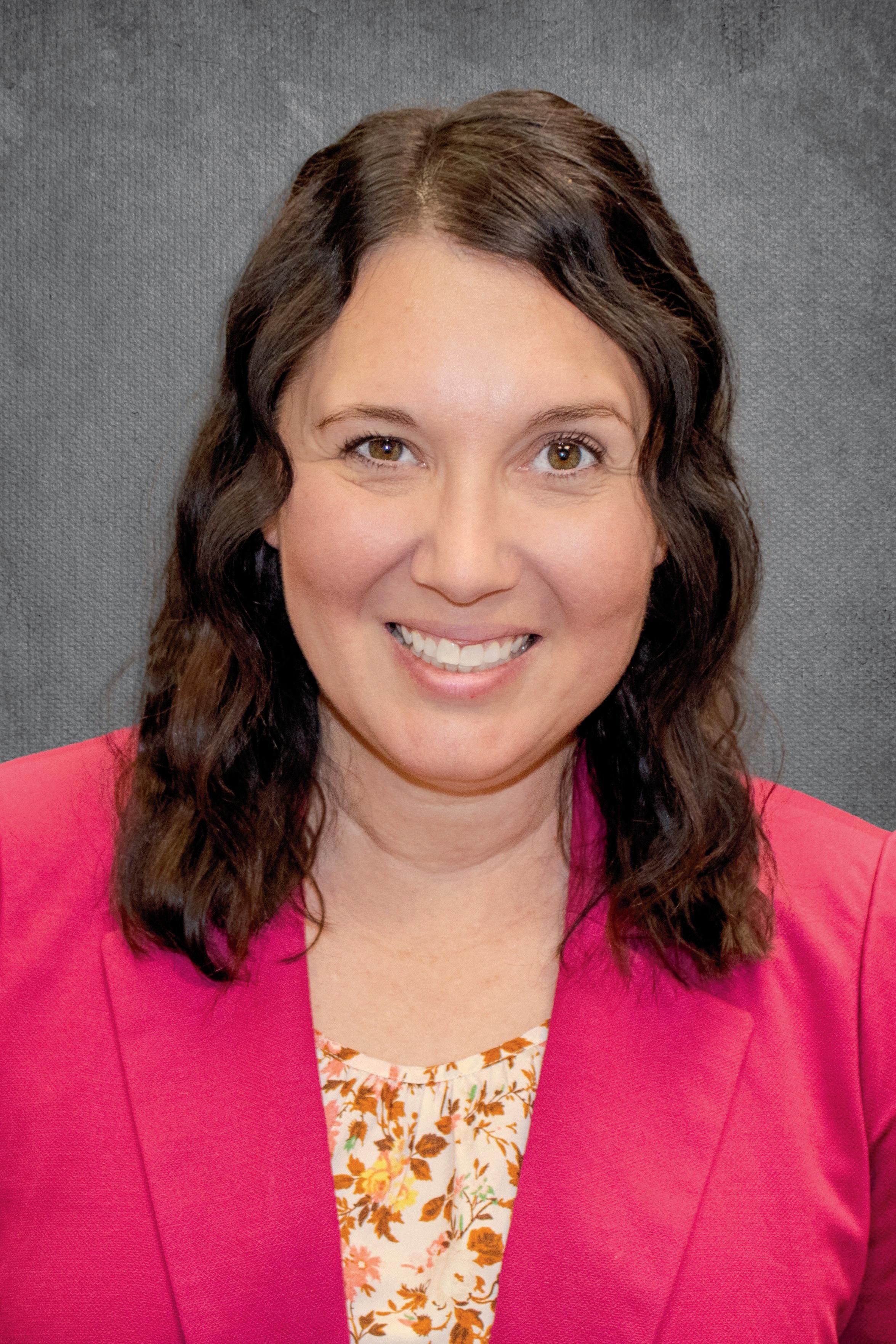














By Todd Ware, President & Chief Executive Officer

When severe weather events like Hurricane Milton, Helene, and the flooding in North and South Carolina occur, we think of Cooperative Principle #6: Cooperation Among Cooperatives. This foundational principle stresses the importance of supporting each other to be more impactful. Looking back at the outstanding accomplishments of relatively small, locally-owned cooperatives, we recognize cooperatives have always been better when they work together.
Let us consider the evolution of cooperatives in relation to this principle. As electric cooperatives formed nationwide in the 1930s and 1940s, they realized that developing organizations that could serve their business needs would be more effective and less expensive than doing those jobs alone. Nearly all of them banded together to form state-based trade associations. Ohio's Electric Cooperatives (OEC), for example, came into existence in 1941 to represent the interests of electric cooperatives in the Buckeye State. They work for all 24 Ohio-based electric cooperatives with a broad range of services, such as safety training, government relations, workforce development, education and communication services.
After the trade associations, generation and transmission cooperatives were formed to help the local cooperatives develop the scale needed to purchase and own large-scale electric supply facilities. Since 1959, Buckeye Power—through its Cardinal Power Plant and other generation resources—has provided a reliable and affordable electricity supply at cost to the cooperatives that do business here.
It was not long before cooperatives found they had better business interests met on a national scale, so they formed the National Rural Electric Cooperative Association (NRECA) to represent them in their dealings with the federal government.
NRECA also provides at-cost benefit plans for our employees and the local cooperative directors take advantage of their governance training courses.
Later, when cooperatives needed a reliable financing supplier for investment in infrastructure, National Rural Utilities Cooperative Finance Corporation was created; when they required property protection and liability coverage, Federated Rural Electric Insurance Exchange emerged. The list now includes information technology companies, national call response centers, telecommunications services and more.
Now that the "among cooperatives" portion of the principle has been explained, we will dig into the "cooperation" side. When an extreme weather event occurs, there are times that cooperatives are hit with significant electrical outages. That is where our cooperatives band together and send crews to assist in restoring their system. This sort of mutual aid is an aspect of cooperatives inherent to their principles. In September, we sent crews to cooperatives in North Carolina and South Carolina to assist in restoring their members. They worked tirelessly, working long hours in rugged terrain and hazardous circumstances with the devastation of the flooding. The Energy Cooperative is honored and humbled to assist and realize that someday we may need assistance from those same cooperatives in a major storm event. Our Energy Cooperative teams are incredible, and they have witnessed first-hand the impact of Cooperative Principle #6: Cooperation Among Cooperatives
As you turn the pages of our last issue of this Times magazine for 2024, I encourage you to make a point to read the article “A Time for Change” on page 8. This article signifies an important shift of responsibilities within Ohio's Electric Cooperatives leadership.
As the holiday season approaches, I wish you and your family peace and joy. The Energy Cooperative is committed to bringing you safe, reliable energy in the new year, ensuring your peace of mind and confidence in our services.

On September 26th, Hurricane Helene made landfall in Florida and progressed north along the Appalachian Mountains and then turned back into Southern Ohio. We fared well from major outages, but many utilities in South Carolina, North Carolina and Tennessee were hit with tremendous amounts of rain in the mountains causing significant flooding and damage. The Energy Cooperative (TEC) sent two crews to Broad River Electric Cooperative in South Carolina and one crew to Buckeye Electric in Southern Ohio. Once Buckeye Electric wrapped up their restoration, that crew headed to North Carolina to assist Blue Ridge Energy. The Broad River Electric crews wrapped up and headed to French Broad Electric in Bakersfield, North Carolina.
3 TWO-MAN CREWS WERE SENT FROM TEC

43 TOTAL DAYS
4 OHIO COOPERATIVES HELPED



"We’re proud to step up and do our part when the call comes. Being down in the Carolinas, working alongside others to get power back on, was a tough but rewarding experience. In times like these, it’s about getting the job done and helping people get back to some sense of normal. It’s an honor to be there for those who need it, and we take a lot of pride in the work we do."

— Marcus Gause, Electric Crew Chief




By Dan McVey, Vice President & Chief Operating Officer — Gas Operations

As we gear up for the winter months, the forecast suggests a season that may be colder and wetter than in previous years. Several weather phenomena, including a strong El Niño, are expected to influence the state's winter conditions, bringing various impacts across different regions.
One of the most significant factors shaping this winter’s forecast is the presence of El Niño, which refers to the warming of the Pacific Ocean, drastically affecting global weather patterns. During a typical El Niño, warmerthan-average sea surface temperatures in the Pacific lead to shifts in the jet stream, impacting temperature and precipitation patterns in North America.
For the Midwest, El Niño winters are often characterized by more precipitation and fluctuating temperatures. This means we could experience more frequent winter storms and periods of above-average rainfall, sleet and snow.
The 2024-2025 winter weather in Ohio is expected to feature a mix of frigid days interspersed with mild days. The occurrence of El Niño typically leads to slightly warmer winters in the northern parts of the United States, especially in late winter. While Ohio may see milder temperatures during certain periods, cold air outbreaks are still anticipated, especially in December and early January.
Central Ohio will see fluctuating temperatures. Warmer-than-normal days may be followed by sudden drops due to the influence of frigid air masses moving in from Canada. This variability could lead to a winter in which Ohioans experience a wide range of temperatures in a short period of time.
The forecast for precipitation in Ohio this winter suggests that most of the state will see above-average rainfall and snowfall. The southern half of Ohio is expected to receive more rain and ice, while the northern half may have increased snow showers. In areas prone to lake-effect snow, particularly near Lake Erie, snowfall totals could be significantly increased.
Frequent winter storms with increased chances of rain, sleet and snow could transition into freezing rain and icy conditions, making the roads and travel plans extremely hazardous.

When interpreting all the available data, it is really anyone’s guess about the upcoming winter, but we should expect a winter season marked by inconstancy, with sudden temperature fluctuations resulting in precipitation changes. It is time to start preparing for El Niño’s presence.

Preparedness will be key for us this winter. El Niño’s influence will likely result in more precipitation, and depending on where you live, this could mean more snow, sleet, or rain. Residents in the north should prepare for the potential of heavier snowfalls, while those in the further south may deal with more frequent rain and ice. The current outlook suggests a season full of unpredictable changes, so staying updated on local weather forecasts is vital to help navigate the winter months ahead.


Our nation’s workforce has experienced significant shifts these past few years as a new generation of workers and leaders has started taking the place of aging baby boomers like myself. Now, as I prepare for my upcoming retirement in early January, I am in the process of turning over the leadership of Ohio’s Electric Cooperatives (OEC) and Buckeye Power to our next president and CEO.
I have had the pleasure of working with Craig Grooms, our current Chief Operating Officer, for more than 20 years. He has rich experience not only with electric cooperatives, but also with other electric and natural gas utilities and from his service in the U.S. Navy. I am extremely confident in his abilities to lead our organization into the future, and I am sure he will enjoy the same generous support that I have received from cooperative leaders and members not only here in Ohio but from cooperatives throughout the country.
He will begin in his new role at a time when the U.S. electric industry faces a seemingly unsolvable challenge: to balance consumers’ need for reliable and affordable
electricity with industry demands for increased supply and government demands to dramatically reduce carbon emissions. But because of our long-standing focus on serving the needs of our consumer-members, electric cooperatives have plenty of experience balancing those kinds of competing interests and working toward winwin solutions. That means we are well positioned not only to meet our members’ needs, but to help shape reasonable, commonsense policies on a national level.
I am confident that Craig, along with the staff at OEC and cooperative leaders throughout the country, will help guide us through the challenges ahead. Thank you for the opportunity to serve in this important mission and for the support you have given me along the way. I have enjoyed every moment working on your behalf to help make our electric cooperatives as strong, unified, and forward-looking as I could. Over the next few months, we will be busy ensuring a smooth transition of leadership and shaping plans for the future. I am looking forward to this new experience, and I am excited for the future.
I have enjoyed every moment working on your behalf to help make our electric cooperatives as strong, unified, and forward-looking as I could.

By Pat McGonagle, Vice President & Chief Financial Officer

Capital credits are one of the core financial concepts unique to cooperatives, distinguishing them from investor-owned utilities. In a cooperative, members own and govern the organization, sharing in its successes and financial outcomes. Capital credits represent the allocation of the cooperative’s excess revenues, or margins, to its members based on their usage or patronage. Rather than paying dividends to external shareholders, cooperatives reinvest their margins into the cooperative's infrastructure, maintenance and expansion needs to serve their communities better. When financially feasible, these accumulated margins are returned to members as a retirement of capital credits.
commitments to members. When the cooperative decides to retire capital credits, it essentially returns a portion of the member’s allocated credits back to them in the form of a check or bill credit, providing a tangible benefit of cooperative membership.
The Board of Directors approved this year’s capital retirement plan at the September board meeting. The Board was pleased to announce that the projected retirement (payout) to electric members for this year is $634,558. The cooperative retired capital credits for the years 1983 and 2003. Members who received electric service during those years will receive a portion of their capital credits.
Of the amounts allocated for those years, 100% of 1983 and 11.1% of 2003 are being retired. If you were a member in 1983 or 2003, your capital credits retirement will be reflected as a check or a credit on your electric bill.
Capital credits are a vital mechanism that aligns the financial success of the cooperative with member interests, ensuring that as the cooperative grows and succeeds, the members share in the benefits. This cooperative approach to ownership and margin-sharing fosters loyalty, strengthens community ties, and exemplifies Cooperative Principle #3: Members' Economic Participation.
ARE CAPITAL CREDITS? not have customers or shareholders. Cooperative’s have members. After we pay our bills and funds into our system, we allocate excess revenue to members. Margins are allocated to capital credits.
The allocation process for capital credits begins at the end of each fiscal year. After covering all operational expenses, including investments in infrastructure, any remaining margins are allocated to members as capital credits. The specific amount assigned to each member reflects their contribution to the cooperative's revenue that year, making it a fair system of marginsharing directly proportional to energy usage. Over time, these capital credits accumulate into a personal account for each member within the cooperative.
Retiring, or paying out, these capital credits is a structured process governed by the Board of Directors. The cooperative has policies for capital credit retirement, driven by its financial health, strategic needs and specific
customers or shareholders. Cooperative’s have members. After we pay our bills and our system, we allocate excess revenue to members. Margins are allocated to
Retiring capital credits has been a high priority for The Energy Cooperative Board of Directors and the employees, past and present. All of us are proud that we can provide this important benefit to our members. We thank you for your continued support and membership in our cooperative family.
CAPITAL CREDITS? do not have customers or shareholders. Cooperative’s have members. After we pay our bills and needed funds into our system, we allocate excess revenue to members. Margins are allocated to capital credits.
Cooperative’s do not have customers or shareholders. Cooperative’s have members. After we pay our bills and reinvest needed funds into our system, we allocate excess revenue to members. Margins are allocated to members as capital credits.

Cooperative’s do not have customers or shareholders. Cooperative’s have members. After we pay our bills and reinvest needed funds into our system, we allocate excess revenue to members. Margins are allocated to members as capital credits. HOW DO I RECEIVE
Featuring Brian Jones, Foreman with The Energy Cooperative's Electric Division
EXTENDO STICK
FLAME
FLAME RETARDANT SHIRT
RUBBER SLEEVES
RUBBER GLOVES
RUBBER GLOVE PROTECTORS
BODY BELT
HAND TOOLS
FLAME RETARDANT TROUSERS
SECONDARY



By Josh Filler, Vice President & Chief Operating Officer - Electric Operations

This edition of the Times, I would like to emphasize what it takes to keep our linemen and members safe near power lines. Overhead distribution power lines are not insulated and carry enough energy to cause severe injury or death. Secondary services are insulated but can still have locations in a service line with exposed and energized conductors. Contact with overhead power lines is a leading cause of electrical-related fatalities. Before beginning work in any area, it is vital to become familiar with the location of all power lines and take steps to ensure your safety.
Have you ever wondered why linemen wear layers of clothing and equipment? Each layer makes up a lineman’s personal protective equipment (PPE). Part of it is to make them more visible to the public, but it is mainly to protect them from electrical dangers, falls and other hazards. The image to the left of this article shows how much it costs to keep our linemen safe when working on the system.
Remember to be mindful when you are driving. Vehiclerelated accidents are a major hazard for our crews working on and around the power lines. Slow down and be vigilant in construction zones so everyone can go home safely. Not only is it a courtesy, it is the law.
The federal Occupational Safety and Health Administration (OSHA) and most states require minimum distances when working near power lines. OSHA regulations call for a distance of at least 10 feet from all power lines, while some state regulations require distances up to 25 feet. Follow these safety guidelines when working near power lines.
• If you see a downed power line, call 911 immediately.
• Never climb power poles or other electrical equipment.
• Do not attempt to remove objects tangled in power lines.

• Maintain a distance of at least 10 feet.
• Call OHIO811 before digging.
• Keep all equipment away from power lines.
• Familiarize yourself with local and state laws.
The equipment used in farming and construction continues to get bigger each year. This presents new challenges when harvesting or driving under power lines that cut across fields or job sites. Be aware of clearances before driving large equipment under power lines, and if you are concerned about the clearances, call us to verify heights.
Aluminum and non-metallic fiberglass ladders can conduct electricity when dirty or wet. When working with a ladder, keep it at least 10 feet away from power lines. When carrying a ladder, keep it level with the ground to avoid hitting a power line.
Construction workers using a scaffolding set must follow the National Institute for Occupational Safety and Health (NIOSH) guidelines for minimum clearances between scaffolding sets and power lines—three feet for power lines less than 300 volts and 10 feet for those with 300 volts or more.
A worker should be appointed to ensure the clearance is being maintained. If minimum clearance cannot be maintained, NIOSH recommends contacting your utility company to de-energize the power lines or provide adequate insulation before beginning work.
Underground power lines pose the same hazards as overhead lines. Ohio requires you to call OHIO811 at least 48 working hours before excavating, boring, pile driving, blasting or hand digging so that the underground utility lines can be located and marked.
Once marked, use appropriate equipment to maintain the required clearance from the power lines — place barricades and warning devices around excavations with exposed cables or pipes. Never try to repair damaged cables or lines.

By Connie Hogue, Vice President of Human Resources & Safety

It truly is the most wonderful time of the year when families and friends gather to enjoy quality time and participate in festive activities, such as decorating the home, baking cookies, cooking delicious holiday meals and exchanging gifts. Holidays bring joy, peace and merriment, but they can also bring thoughts of stress and worry. These emotions are normal because you want to keep your family safe and happy. Follow these safety tips to give yourself more peace of mind before the before the hustle and bustle of the holiday season.
Decorating your home can be fun, but it requires a lot of time and effort. First, you need to tidy things up around your home. Then, you need to haul your festive décor out of your basement or garage and place it in an aesthetically pleasing way. To avoid exhaustion and hazards to your well-being, consider these tips.
• Always bend with your knees before lifting heavy boxes.
• Before hanging your LED lights on your home, check for any broken bulbs or frayed wires. If you notice any, throw them out and get a new strand of lights.
• Before climbing, ensure you have the correctsized ladder, which should be sturdy and in good condition. Always place ladders on flat ground.
• If you get a real tree, place it at least three feet away from any heat sources like fireplaces, radiators and space heaters, and water it often.
• If you have an artificial tree, ensure it has a fire-resistant label on the box or the tag.
• Do not place fragile or glass ornaments on the tree's lower branches.
No holiday is complete without family and friends gathering around the dinner table to enjoy a delicious meal. Unfortunately, fires can happen quickly in the kitchen, especially when you are on a time crunch and distracted by the people around you.
Here are six ways to prevent fires in the kitchen.
1. Make sure your smoke alarm is working correctly.
2. Keep a fire extinguisher (Class K) nearby.
3. Tie up your hair and wear short sleeves.
4. Keep recipe books, oven mitts, hand towels and utensils away from the stove.
5. Make sure someone is always in the kitchen to monitor the food.
6. After cooking, turn off the oven and stovetop, and unplug any mixers.
Receiving gifts is nice, but giving gifts is even better. However, thousands of kids are injured due to toy-related accidents every year. Consider these safety tips when planning your gift-giving.
• Purchase toys that have appropriate age ranges listed on the front of the box.
• Children under three should not be given toys with small, removable pieces since it is a choking hazard.
• Be wary of toys that require batteries. If a child accidentally swallows a battery, it could result in severe injury or death.
• If you get a child an electric ride-on car, such as a motorcycle, jeep, quad or four-wheeler, provide them with safety gear. Children should never be left unsupervised with electric ride-on cars.
This time of year can be dangerous for your children and pets. They should be closely monitored during the holidays. Protect your children and pets from safety hazards with these four tips.
• Keep decorations out of reach.
• Do not leave them alone in the kitchen.
• Never leave them unattended near open flames.
• Keep them away from the Christmas tree.
Share these tips with others – and always remember to keep safety at the forefront of your mind. From all of us at The Energy Cooperative, we wish you and your family a very Happy Holiday season.
By Wayne Zollars, District 5, CCD

As a director of our cooperative for the past three years, I am continually reminded of our unique strength as a memberdriven organization. At the heart of our cooperative values lies Cooperative Principle #2: Democratic Member Control. This principle is a cornerstone that ensures every member has an equal voice.
Democratic Member Control goes beyond mere participation; it embodies the idea that every member holds a stake in our cooperative. This collective ownership fosters a sense of shared responsibility and accountability. When you express your opinions, nominate potential directors, and cast your votes, you are actively shaping the future of our cooperative. Every member's voice matters, especially during critical moments like our annual director elections. I urge you to participate in this process. Your vote is your voice, and it carries weight in determining the direction and leadership of our cooperative.
A cooperative director must prioritize the needs of the cooperative and its members. They must have strong attributes, such as loyalty and obedience, to be able to perform duties while keeping confidentiality and due diligence in mind.

To participate in a director election, you must reside in the district, agree to serve a three-year term, complete a qualification questionnaire, and agree to the time commitment requirements.
In 2025, districts 3, 4, and 7 are up for re-election. Below is the election timeline as you consider cooperative members you would like to consider nominating:
1. Nominations open in January; you will receive a letter with instructions and deadlines.
2. The nominating committee will interview nominees and make their recommendations. The final eligible nominees will be announced in February.
3. The Annual Meeting notice, including your voting ballot, will be mailed in March. It will include bios of the nominees and instructions for all options for placing your vote.
4. The election results will be announced toward the end of our Annual Meeting in May.
I encourage you to take advantage of your membership. Nominate and vote in the upcoming elections and help guide our cooperative's vision. Thank you for being an active member and for your continued commitment to our shared principles.
Wayne is CEO and president of Smithhisler Meats, Inc. located in Knox County.

He is a member of the Knox County Farm Bureau, Ohio Grocers Association, Knox County Cattlemen’s Association, and is a Monroe Township Trustee.


Zollars is involved with the Blue-Ribbon Livestock 4-H Club.

By Heather Juzenas, Vice President of Marketing & Member Services

The Energy Cooperative partners with National Rural Electric Cooperative Association (NRECA) to complete yearly member satisfaction surveys. The survey responses are sent to the American Customer Satisfaction Index (ACSI®), a company that measures customer satisfaction across multiple industries throughout the United States. For 2024, we received an ACSI® score of 84 (natural gas) and 80 (electric), on a 100-point scale. In addition to the scores, the survey report provides us with feedback and comments from our members. This valuable information helps me understand what we need to communicate better. Here are five things we want our members to know, based on common misconceptions we heard from this year’s ACSI® surveys.
We have seven local employees dedicated to answering member phone calls on weekdays between 7:30 a.m. and 4:30 p.m. by calling 740-344-2102. Outside of those hours, we partner with the Cooperative Response Center (a third-party call center) that supports cooperatives nationwide. They have employees who answer the phones 24/7/365. When major outages happen in our region or around the country, you will notice that hold times increase. However, they are always available to speak with our members.
When you call The Energy Cooperative, our member service representatives do their best to answer your questions. When we cannot answer them, we transfer you to the best person to help. For example, we transfer service issues to the supervisor of the appropriate department. Unlike our dedicated member services team, our operations employees are not always in their offices. When we transfer your call outside of member services, expect to leave a voicemail. Your call will be returned, but it may not be on the same day.
We have the ability to send estimated restoration times to your mobile device. You can register for custom
outage notifications on our website or by using the SmartHub app. Once you let us know how you would like to receive these messages, we will email and/or text you estimated restoration times during outages.
Our electric generation comes from Buckeye Power, and their baseload generation comes from their state-of-the-art coal and natural gas-fired power plants. Buckeye Power also has a mix of renewable energy, including solar arrays in 24 locations across Ohio, biogas from anaerobic digesters at livestock farms, methane generation from the Hancock County Landfill, and hydropower from Niagara Falls.
The Energy Cooperative has a solar array in Utica, Ohio. We invite our electric members to lease solar panels and use the solar energy they produce. This is an easy way to get solar energy without the expense or maintenance of your installation.
We also have many members who connect their own renewable generation to our system. This is an excellent option for those wanting to invest in renewable energy. For small renewable generation systems, we credit members for power generated back to the grid through a “Net Billing” process. Our electric meters monitor the bidirectional flow of electricity to track when members consume electricity off the grid and when they generate electricity to the grid. The member is billed for the energy we supply, and we purchase excess generation from the member.
The monthly facility fee covers the cost of bringing electric, natural gas or propane to your home. This includes pipelines, poles, wires, substations, meters and more. The facility fee does not vary with your energy use. Whether you use a lot or a little energy each month, we must ensure the infrastructure is in place.
We work every day to bring value to our members and show you the cooperative difference. If you have feedback to share, you can send a message directly from our website www.myenergycoop. com/contact-us or give us a call.
*ACSI® is a registered trademark of the American Customer Satisfaction Index LLC. For more about the ACSI®, visit www.theacsi.org
• Do not operate lights, appliances, telephones or cell phones. Flames or sparks from these sources can trigger an explosion or a fire.
• Leave the area immediately. Get everyone out of the building or area where you suspect a gas leak.
• Shut off the gas. Turn off the main gas supply valve on your propane tank, if it is safe to do so. To close the valve, turn it to the right (clockwise).
• Report the leak. From a neighbor’s home or far away from the suspected gas leak, call 911 and The Energy Cooperative right away.
• Do not return to the building or area. You should not return to the area until we determine that it is safe to do so.
• Get your system checked. Before you attempt to use any of your propane appliances, we need to check the entire system to ensure it is leak-free.
• Properly install and maintain connectors. It is important that all appliance connectors are properly inspected, installed and maintained by a qualified service technician.
• Have connectors checked when moving or replacing appliances. Connectors can wear out from too much moving, bending or corrosion. Connectors should be checked by a qualified service technician whenever the appliance is replaced or moved from its location.
• Use only approved appliance connectors. Make sure that all connectors and gas piping/tubing that bring propane to your appliances are installed by a qualified service technician and approved by the American National Standards Institute (ANSI).
• Have older appliance connectors inspected. Over time, some types of appliance connectors can crack or break, resulting in a serious gas leak and the possibility of fire or explosion. If you have an appliance that is more than 20 years old, have a qualified service technician inspect the connectors to be sure they are safe and meet current safety code requirements.
• Do not move an appliance yourself. Moving an appliance might damage the connector and create a leak.
The natural gas we deliver to you has an odor added to it called mercaptan that smells like rotten eggs. You may not be able to detect the odorant because of a weakened sense of smell or because the odorant is masked by other odors. Odor fade is an unintended reduction in the amount of odor in natural gas and propane that makes it difficult to smell.
• Air, water or rust in a propane tank or cylinder can reduce propane odor concentration.
• If the gas is leaking underground, its passage through soil may reduce the smell.
• The odor may stick to the inside surfaces of gas piping and distribution systems and possibly other materials.
• Since there is a possibility of odor fade or problems with your sense of smell, you should respond immediately to even a faint odor of gas.
• If you are concerned that you or others in your home may have difficulty smelling propane, consider buying propane gas detectors.

By Scott Stitts, Vice President & Chief Information Officer

In today’s digital age, it is imperative that parents, caregivers and teachers protect children from the dangers of the internet, such as phishing, cyberbullying, cyber predators, accidentally downloading malware, and having their personal information leaked. Below are tips you can utilize to help your children stay safe online.
Take a deep dive into what your children are posting online. If you notice content that could potentially damage their character, address it immediately. It would also be beneficial to review their friend lists on each social media account. Ensure they are only following people they know and verified accounts.

Downloading antivirus software on your children’s devices can help them avoid viruses, malware and cyber-attacks. You will have peace of mind knowing that the information stored on their phone, computer or tablet is secure.
Adjust your child’s privacy settings on their phone, computer or tablet by turning off location services, putting parental controls in place, adjusting their screen time, and establishing a “code of conduct” – which allows you to set clear expectations and monitor their activity.
Be wary of app location settings. Many apps have access to your location, but you can update your preferences in settings. Apps that know your child’s location can be threatening to their safety.
Your children should be able to confide in you when something bothers them. If they see graphic content or if a predator targets them online, they should feel comfortable turning to you for guidance and direction.
Children are curious and easily influenced by what other people say or do, especially online.
That is why it is vital to educate kids about the negative impacts of having an online presence and give them safety tips to help them

about protecting themselves online, it is also crucial that you take online safety into consideration everytime you use your mobile device or go online.
1. Keep personal information private. You should never share your phone number, address or financial information online. The more details that you provide, the easier it is for cyber predators to steal.
2. Be mindful of what you share online. It should be emphasized that whatever you post online, whether you delete it or not, can still be found and traced back to you. Derogatory posts can lead to prosecution.
3. Report cyberbullying when you see it or if you experience it yourself. People believe they have the freedom to say anything they want online – while that may be true, there are consequences when the words threaten or harm others. Reporting cyberbullies suspends their accounts and prevents it from happening to others.
4. Refuse to meet someone you met online in person. The internet has given people the ability to hide their identity. It has become increasingly simple for cyber predators to trick people by disguising themselves as someone else. They create fake social media profiles by using photos and videos of the person they are impersonating.
5. Take a break and unplug from the internet. Social media can be addicting, and it can take a toll on your mental health if you are on it constantly. Take frequent breaks from the internet, especially when it starts to affect your mood and sleep schedule.

Because of the generosity of our members rounding up their bills to the next whole dollar amount each month, The Energy Cooperative's Operation Round Up Foundation has donated more than $4.5 million to community organizations.
The Operation Round Up Foundation awarded $76,423 to the following community organizations in October 2024:
American Red Cross towards a blood collection center
Narrow Road Community Church to purchase an AED

Newton Township fire department for rope rescue equipment
village of dresden swim center to purchase start wedges
Tri-Valley Wrestling for mats
Granville township to purchase thermal imaging cameras
newark band parents club towards a practice field
4-h camp of ohio towards concrete replacement
johnstown monroe choir boosters for microphones
Muskingum County Agricultural Society to upgrade electrical infrastructure
northridge diamond club boosters towards batting cage updates
buckeye lake leads & food pantry for carpet replacement
Do you know an organization that could benefit from an Operation Round Up grant? Scan the QR code with your smartphone or visit myenergycoop.com/roundup.


Can you find all the words associated with holiday fun?
Use the word bank to check your work.
Happy Holidays from The Energy Cooperative!
The Energy Cooperative’s business hours are Monday through Friday from 7:30 a.m. to 4:30 p.m.
• Member service: 740-344-2102
• Electric outages or emergencies: 888-535-5732
• Natural gas or propane emergency: 740-344-2102
If you see a downed power line or other electrical hazard, call 911 then call our outage line at 888-535-5732. Assume every downed power line is energized and dangerous.
If you smell rotten eggs or suspect a gas leak, leave the area immediately. Call 911 then call us at 740-344-2102.
